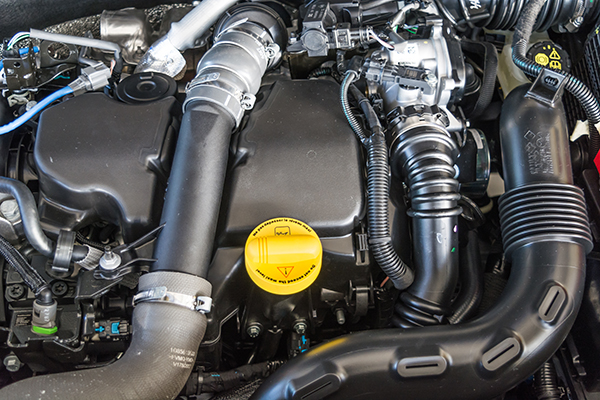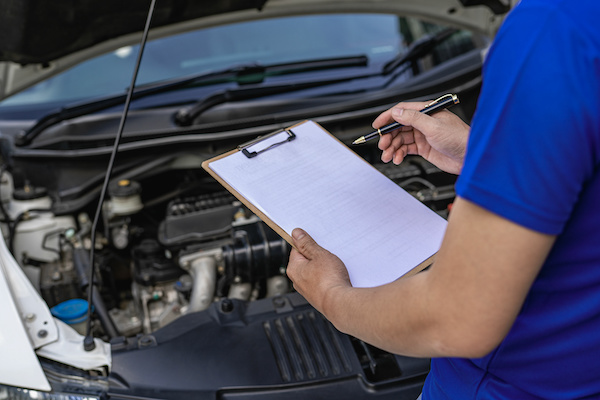Posted on 12/4/2023

A clean windshield is essential for safe and enjoyable driving. Windshield washer concentrate tablets have gained popularity as a convenient way to keep your view unobstructed and free from streaks. But do these tablets really work, and how should you use them? Let's dive into this handy automotive hack. Does It Work? Yes, windshield washer concentrate tablets are an effective solution for maintaining a clear and clean windshield. These tablets are designed to dissolve in water and create a powerful cleaning solution that can remove dirt, bugs, and road grime with ease. They offer several advantages: Convenience: Unlike traditional liquid washer fluids, tablets are compact and easy to store in your glove compartment. Environmentally Friendly: Many tablets are eco-friendly, reducing the impact on the environment compared to so ... read more
Posted on 11/29/2023

Have you ever felt that subtle tremor beneath the hood, like a heartbeat out of sync? Today, we will go on a journey to decode the subtle language your engine speaks, specifically when it comes to timing issues. Your car, much like a finely tuned orchestra, relies on perfect timing. A question arises: When the synchronization fails, what are the consequences? Misfires and Hiccups Your engine's performance should be as smooth as a ballroom dance, but if you notice it stumbling, stuttering, or emitting an irregular rhythm, it might be a telltale sign of timing trouble. Misfires are like the misplaced steps of a dancer, disrupting the fluidity of your engine's performance. Unusual Engine Noises A well-timed engine produces a harmonious hum. If you start hearing clanking, knocking, or pinging no ... read more
Posted on 10/28/2023
.jpeg)
You're on a long, open highway, wind in your hair, music in the background, and the road ahead. It's just you and your car, a bond that's evolved over miles of adventures. But have you ever wondered what keeps that four-wheeled friend of yours purring like a contented cat on the road? The Roadmap to Car Longevity Cars are more than machines; they're an extension of ourselves, vehicles of adventure, and vessels of memories. To keep this relationship alive and vibrant, your car needs regular check-ups, just like you do with your doctor. What are 30/60/90/120K Mile Services? These mile services are a series of check-ups and maintenance activities designed to keep your vehicle in peak condition. The numbers represent the mileage intervals at which these services should be performed: 30,000, 60,000, 90,000, and 120,000 miles. Each interval involves a set of tasks that become increasingly comprehensive to address the evolving needs of you ... read more
Posted on 9/30/2023

Car owners often wonder if tune-ups are necessary, given advancements in automotive technology. In today's modern vehicles, the phrase "tune-up" might seem like a relic from the past, conjuring images of adjusting carburetors and tweaking spark plugs. However, the truth is a bit more nuanced. Tune-ups in contemporary automobiles focus less on the traditional tasks and more on regular maintenance services. These services ensure that your vehicle continues to run efficiently, saving you money in the long run. Spark Plugs: One of the key components checked during a tune-up is the spark plugs. They play a crucial role in igniting the air-fuel mixture in your engine. Over time, spark plugs can become fouled, leading to decreased fuel efficiency and engine performance. Replacing them can enhance your car's combustion efficiency. Air Filters: A clean air filter is essential for the health of your engine. A clogged air filter can reduce airflow, leading to decreased power ... read more
Posted on 8/31/2023

When it comes to maintaining your Nissan Rogue, a little knowledge goes a long way. Your trusty companion on daily commutes and weekend getaways deserves the best care to ensure it performs optimally and stays reliable for years to come. 1. The Routine Check-up Just like regular doctor visits keep you healthy, routine maintenance ensures your Nissan Rogue's health too. Begin with oil changes, air filter replacements, and tire rotations. Nissan recommends an oil change every 3,000 to 5,000 miles, depending on driving conditions. This simple step will keep your engine purring and extend its lifespan. 2. Smooth Sailing Transmissions The transmission is your Rogue's gearbox, and it deserves special attention. Regular fluid checks and changes can prevent costly repairs down the line. If you notice jerky shifts or delays, consult a professional mechanic to avoid further complications. 3. Brakes – Your Safety Net Bra ... read more